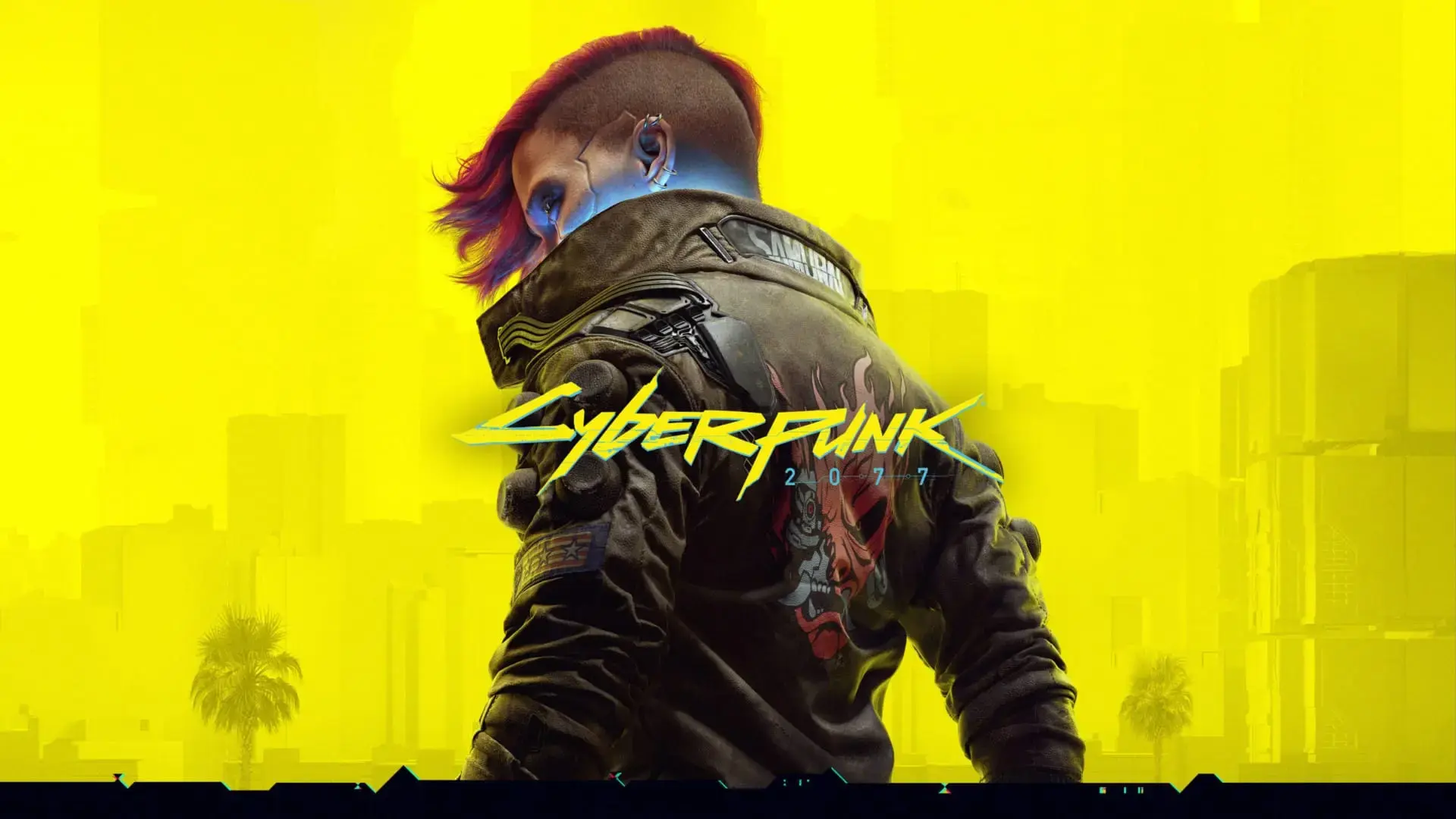Story of a Game: Cyberpunk 2077
Games have stories. Not just stories of how they were developed, but stories from the people that played them and the way they affected the gaming world.
In this series, Ultimate Gaming Paradise is going to bring you some of the stories of games, from headline-making triple-A titles to some indie masterpieces.
During the COVID years, one game saw more news column inches than any other. What happened to make and break Cyberpunk 2077?
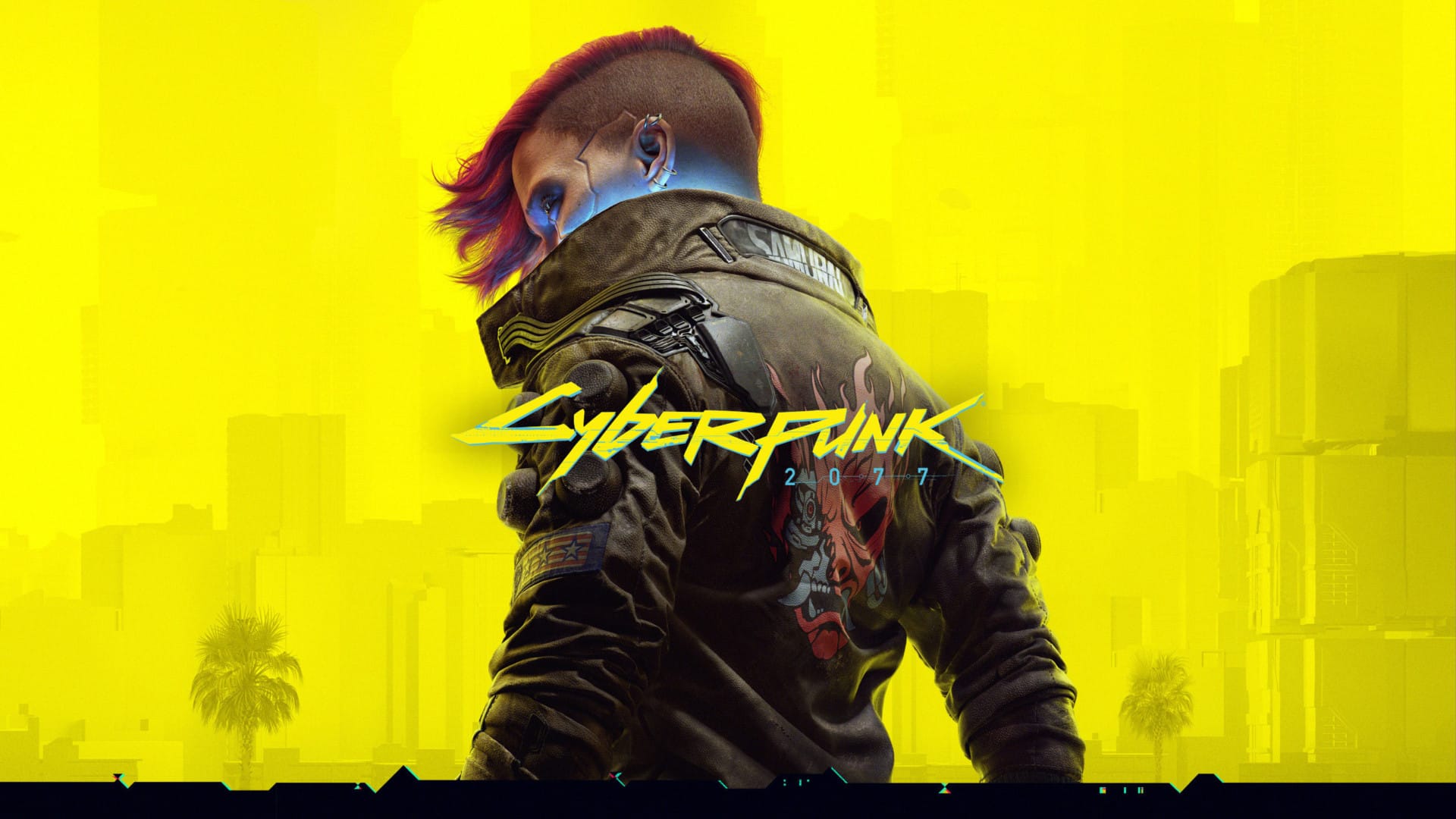
The Lead-Up to Cyberpunk 2077
Role-playing games of note tend to have pedigree, and Cyberpunk 2077 is no exception. Born from a tabletop role-playing game from the late 1980s (called, simply, Cyberpunk), Cyberpunk 2077 can trace its roots to some of the finest science fiction of the day, most notably the seminal film Blade Runner.
Cyberpunk, the tabletop game, went through three revisions, the most significant of which came in 2020 and was called Cyberpunk Red.
Cyberpunk Red improves on the world-building and lore from its earlier versions and forms a link between the tabletop series and the then-upcoming video game Cyberpunk 2077. It was released in partnership with the latter’s development studio, CD PROJEKT RED (CDPR), who by this time had become involved with the intellectual property of Cyberpunk on almost every level. Even the title of this revision of the game carries a homage to the studio—while the “Red” in the name of Cyberpunk Red is an in-game reference to the colour of the sky, there’s no doubt it’s a nod to the studio themselves as well.
As a side note, the Red part of CDPR’s own name refers to the team’s location in the Polish city of Łódź, known for its association with the colour.
Popular Products
CD PROJEKT RED weren’t the first people to pitch for the rights to make Cyberpunk into a computer game. They were just the first to do it in a way that made Cyberpunk’s creator Mike Pondsmith happy:
“What fascinated us was that they knew the material and they loved the material as fans. When I went up to see them, they could quote me chapter and verse of characters they wanted to have in it, and groups and organizations and events. So unlike many of the people who wanted to do Cyberpunk as a videogame, CDPR got it because they liked it, loved it, had lived it.” – Mike Pondsmith in an interview with PCGamesN in 2018.
Moving from a tabletop RPG with thirty years of accompanying material and reams of inspiration of its own meant that Cyberpunk 2077 was being developed with a solid amount of world-building already in place; that, and a significant fan base eager to see what would happen.
Announcing Cyberpunk 2077
CDPR announced Cyberpunk 2077 in May 2012 with keen interest. With The Witcher and its sequel under their belt, CDPR was already considered a solid game development team worth watching and, though the setting of Cyberpunk differed considerably from the more standard fantasy of The Witcher, their experience with many of the games’ similar elements meant that the world at large trusted that the franchise was in good hands.
Then there was the incredible trailer. With a perfect blend of cool and sexy, the trailer was an undeniable work of art that fuelled the furore everywhere. It was slick and filled with promise.
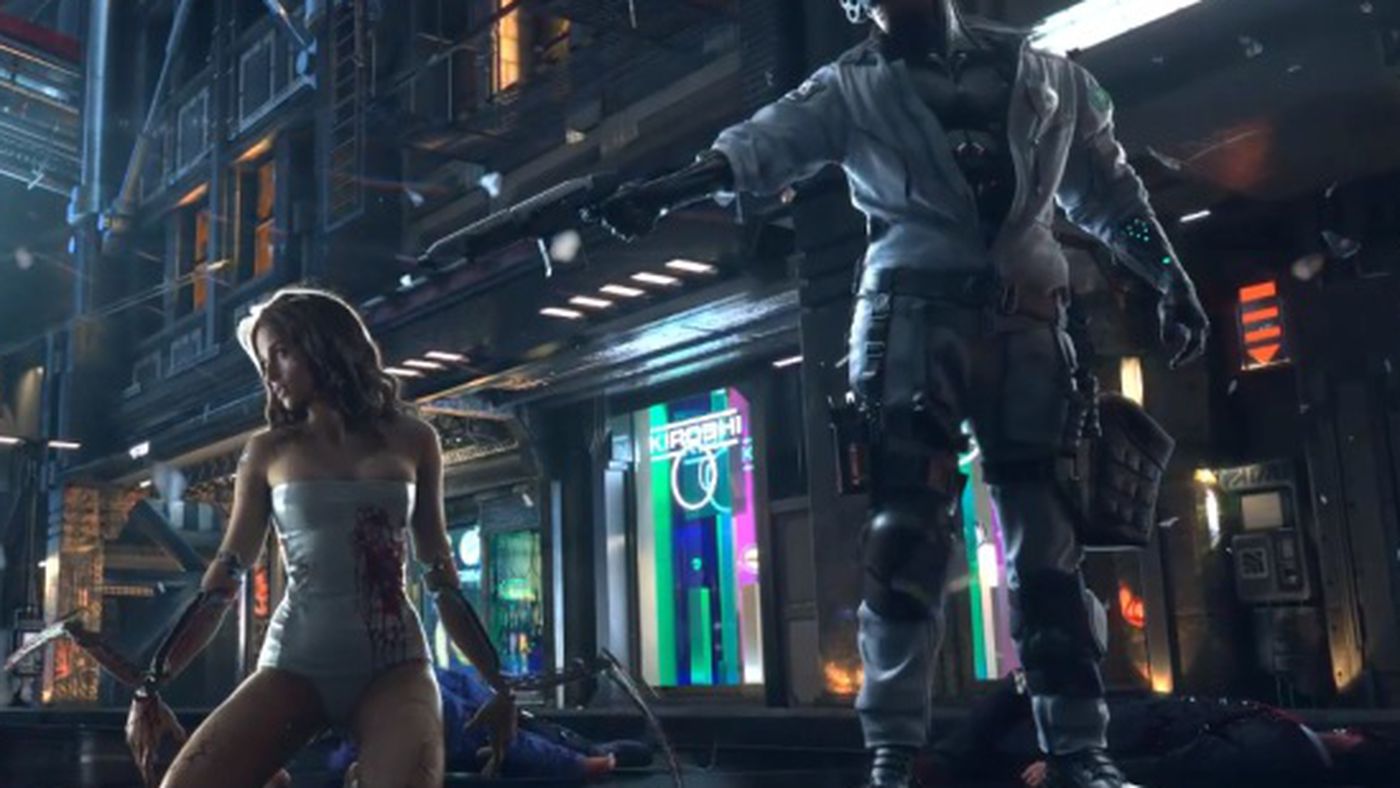
The anticipation grew. Despite five years going past with no sign of the game itself, Cyberpunk 2077 maintained its position as a hotly-desired title. Something that wasn’t hurt at all by the brilliance of The Witcher 3.
CDPR worked with the ethos of developing a single AAA title at a time. While many other studios ran concurrent projects, these were people who wanted to concentrate on one title at a time…and be sure to get it right. The Witcher 3: Wild Hunt came out in 2015 (more than two years after the Cyberpunk 2077 announcement and teaser) and quickly established itself as one of the finest RPGs ever made, with some arguing it was the best game of all time.
Given such unmitigated success with their main franchise, the hype for Cyberpunk 2077 continued to build.
Next, at E3 2018, another mind-blowing trailer premiered.
The game trailers stunned audiences everywhere. There was so much to see and take in, so many ideas and questions, and the idea that computer games had reached an entirely new level. After the 2018 trailer, Cyberpunk 2077 rose in the desire rankings once more. Could they possibly top that level of excitement?
No problem! They gave us… Keanu Reeves.
Fresh In
If you were to draw a Venn diagram with people-who-love-Keanu on one side, and fans of sci fi on the other, the intersection would be vast. Take The Matrix into account, splash in a little John Wick and even sprinkle in Bill and Ted and you have a swathe of fans who also happen to love gaming. It doesn’t hurt that Keanu is one of Hollywood’s most loved personalities.
And it doesn’t just look vaguely like him in the game. It completely and utterly is him. No question.
Even without him, the 2019 trailer was incredible to behold.
Still with no release date in sight, by 2019, Cyberpunk 2077 was officially the top item on almost every gamer’s wishlist.
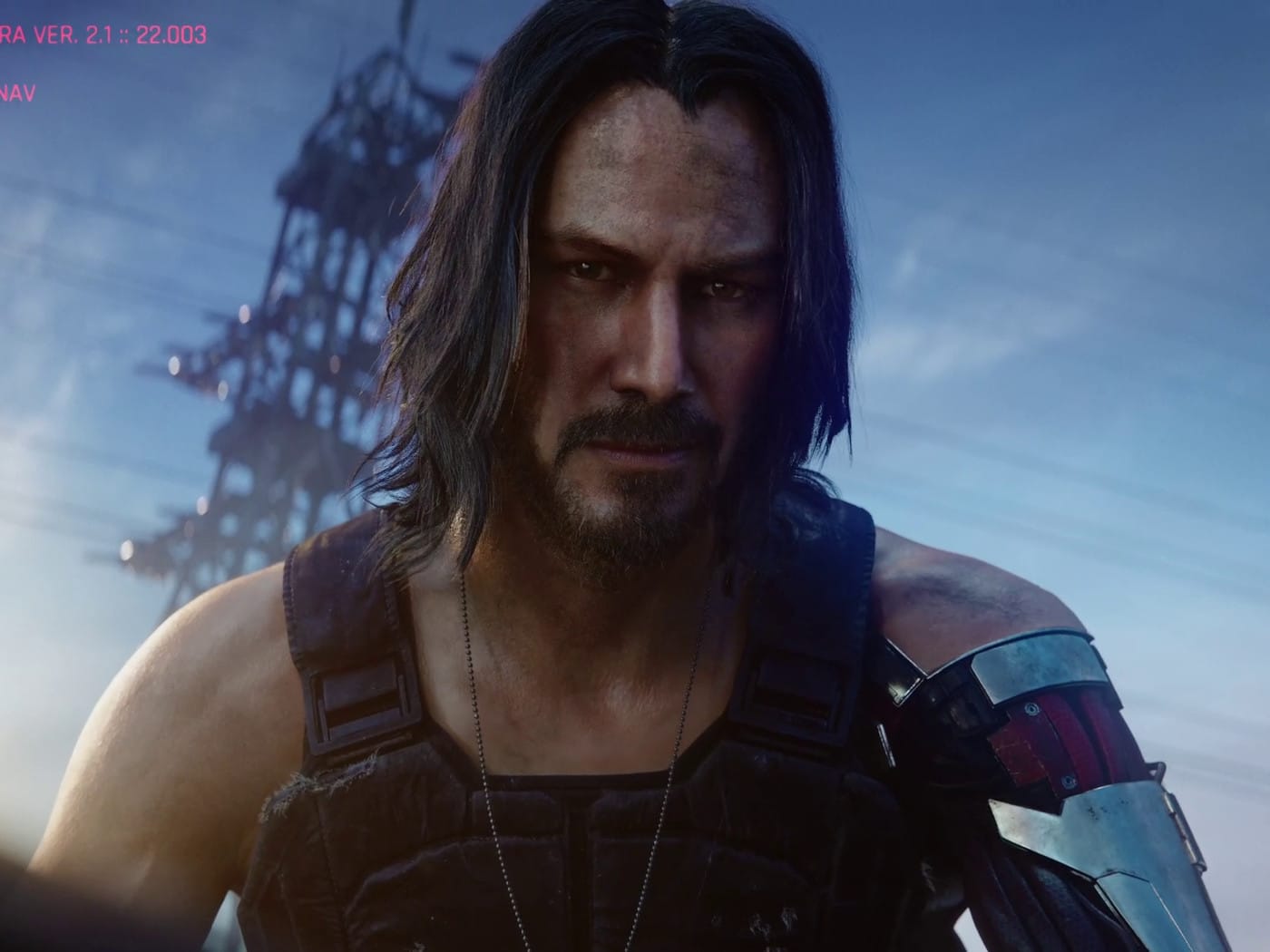
The Evils of Crunch Culture
The scene was set for one of the greatest game releases of all time. All that was needed was a date, oh, and the platforms.
Let’s face it, when games look that good and seem to want to push hardware to an all-new level, it’s PC gamers that get the goods. Unsurprisingly, when Cyberpunk 2077 was first announced, the only platform that it was initially confirmed for was Windows.
So, when at E3 2018 PlayStation 4 and Xbox One were added to the mix, along with the second trailer, the announcement was met with great enthusiasm.
When?! When?! Players wanted to know.
Finally, Keanu told us. It was going to come out on the 16th of April 2020.
Eight years after its initial announcement, Cyberpunk 2077 would hit the streets.
Would they manage to do it in time?
Popular Products
There is no doubt that the pressure can be on for any top-tier game to get everything done and ready for the scheduled release. Sadly, over the years, this has led to the phenomenon known as “crunch culture”.
When development teams were small and consisted of people personally invested and, importantly, financially incentivised to put in whatever effort was needed to get it right, the idea of a last-minute crunch is fine. It’s voluntary, it’s about the love for the project, and it’s rewarded.
Crunch culture is different. It is a term that is used to describe forced overtime on team members, where game development teams are made to work 70+ hour weeks and often with no financial recompense whatsoever.
There is no doubt that crunch culture is a bad thing. It’s big business gone very wrong and can cause long-term damage for those who suffer under it. When the “crunch” stretches, it only gets worse as a promise of a couple of weeks of extra hard work in return for a bonus becomes instead, months of unrelenting overtime with only negative impact.
Crunch time rarely results in a better product either, something that was very much true in Cyberpunk 2077’s case.
To make it worse, CD PROJECT RED is a company that promised no crunch culture, only to go back on that very ethos when they enforced a mandatory six-day working week in September 2020 to get Cyberpunk 2077 finished.
Hang on, September 2020. Wasn’t the game launched in April of that year?
The World’s Most Disastrous Delays
In January 2020, CDPR tweeted the first delay.
“We are currently at a stage where the game is complete and playable, but there is still work to be done,” they said in a bright yellow announcement that was to become a hated sight.
OK, so no longer April, but now 17th September.
“We have decided to move the launch of Cyberpunk 2077 from September 17 to November 19.” Another bright yellow announcement filled with apologies and rhetoric about not shipping “something which is not ready”, “balancing game mechanics” and “fixing a lot of bugs”.
Fresh In
Ah, still not ready then.
The hideous crunch once promised to never happen, came next. There was no choice but to hit that 19th November date. Missing that would surely cause a substantial loss of consumer trust.
On 27th October 2020, the latest yellow message stated, “we’ve decided to move the release date of Cyberpunk 2077 by 21 days. The new release date is December 10th.”
Wow. This time, the reasons cited involve the new generation of console hardware. The game, originally planned for the PS4 and Xbox One, had taken so long that both Sony and Microsoft had released a whole new generation of hardware in the meantime. CDPR had to test nine versions of the software and it was proving more than a little difficult to get it all to work.
By this point, the delays had done more than shake faith in the fanbase; they had made some extremists exceptionally unhappy. Some members of the development team even received death threats. The situation had reached new and if we’re honest, quite ridiculous proportions.
It was a long road, more than eight years of anticipation, but finally, the 10th of December rolled around. Cyberpunk 2077 was in time for Christmas!
A Game of Bugs
There’s no kind way to say it. Cyberpunk 2077 was a buggy nightmare. A failure. A flop.
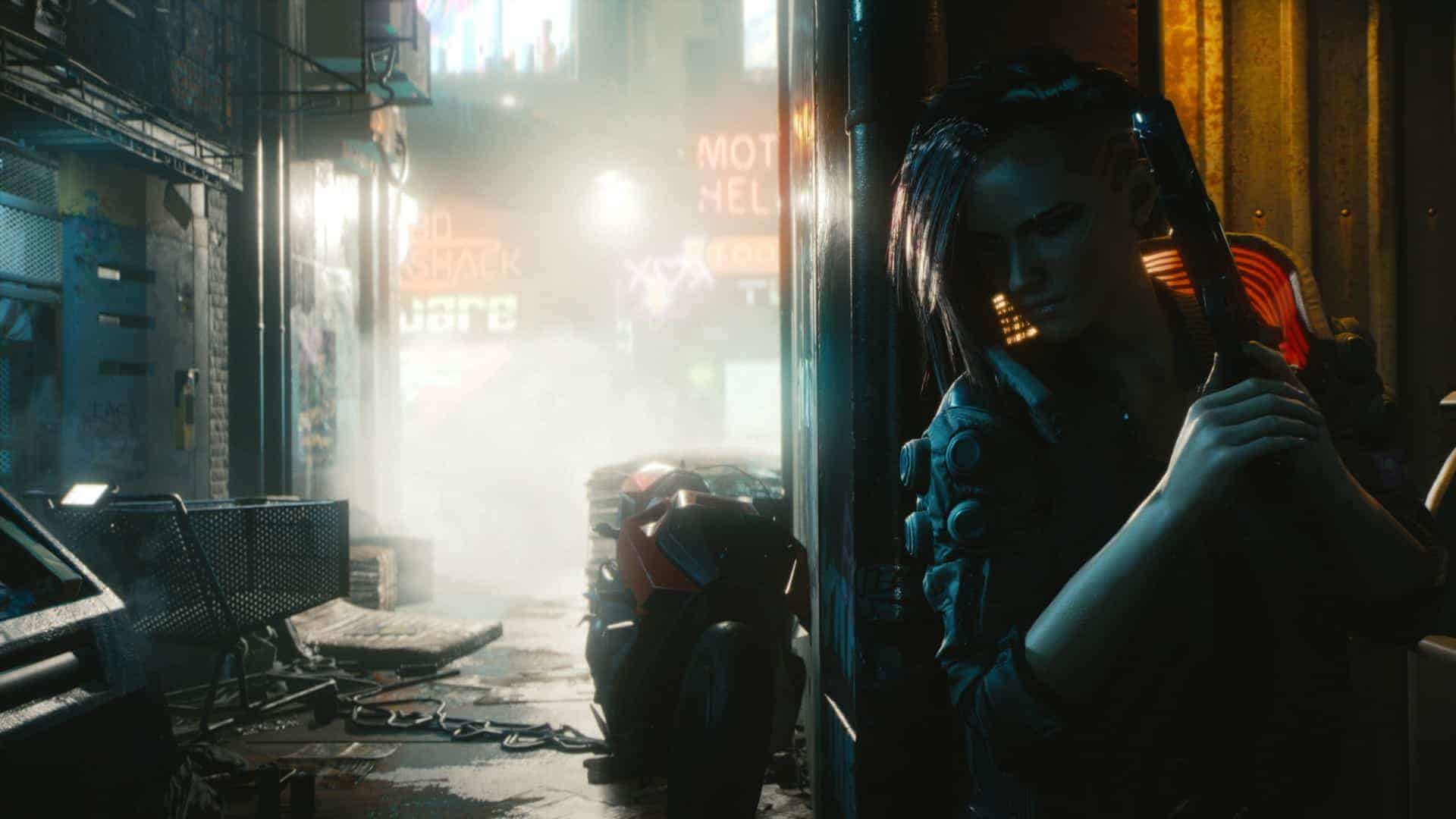
As we reported at the time, this was a game that spectacularly failed to live up to the hype. Players weren’t just disappointed by the myriad of bugs that threaded their way through the experience, they discovered the game was unplayable.
It was worst for those trying to run the game on PlayStation 4 and Xbox One hardware. Despite CDPR’s promises and (no doubt) best efforts, the now-last-generation consoles just weren’t up to the task.
Cyberpunk 2077 didn’t just fail to live up to expectations, it took those expectations and burned them in a ceremonial fire, then danced on the ashes.
Players cried, and then rose and fought back. The complaints were staggering, the number of refunds incredible. It even made mainstream news across the world.
In perhaps the most stunning move, Sony removed Cyberpunk 2077 from the PlayStation Store and refunded the player base. Microsoft, too, offered a returns policy for disgruntled Xbox players—which was pretty much all of them.
The cries for a patch were deafening. Players wanted what they had been promised; they weren’t interested in excuses and money-back offers. They wanted an experience to end all others or they wanted blood.
Other Controversies
Being an unplayable game that has resulted in worldwide condemnation by the gaming community should have been enough for Cyberpunk 2077 to make headlines, but there was more.
It didn’t help matters that some people found the game offensive.
Some in the trans community didn’t like the way the game defined gender, using voice as the characteristic to determine whether the player is considered male or female.
Many others noted the game’s sexism and adolescent-like focus on titillation, with one writer stating that “there’s nothing unique or shocking about the sexualisation of female and transgender bodies. What is shocking is Cyberpunk 2077‘s commitment to making players feel uncomfortable at every turn.”
Popular Products
More still disliked the game’s gratuitous violence, depictions of sex workers, and drug culture. There was even an early bug that meant that breasts and penises were incorrectly displayed outside of clothing.
Of course, Cyberpunk 2077 is an 18+ game, and the developers always intended that to be the case, but over-sexualisation is an ongoing problem in the game industry and not one that CDPR seem to have been sensitive to in any way. With eight years of marketing that was very much directed at a teenage demographic, perhaps Cyberpunk 2077 should have been more carefully crafted in this regard.
That said, as many people noted over the years, CD PROJEKT RED announced an 18+ game to eager teenagers in 2012 and then gave them time to become over 18 before releasing it.
Fourteen Months of Fixes
It took until February 2022, fourteen months after its horrific launch, before Cyberpunk 2077 was truly considered playable. With Patch 1.5 and the Next-Gen Update (which upgraded the game for PS5 and Xbox Series X players), most of the problems that had plagued Cyberpunk 2077 were ironed out.
Plenty of damage had been done to CD PROJEKT RED in the meantime—the crunch culture controversy and release issues damaged both the company’s reputation and its finances, with some reports suggesting investors lost more than $1 billion as a consequence.
Time is a great healer, however, and all the gaming community really wanted was the game that had been promised to them a decade earlier. When, in February 2022, this seemed to actually happen, forgiveness came quickly.
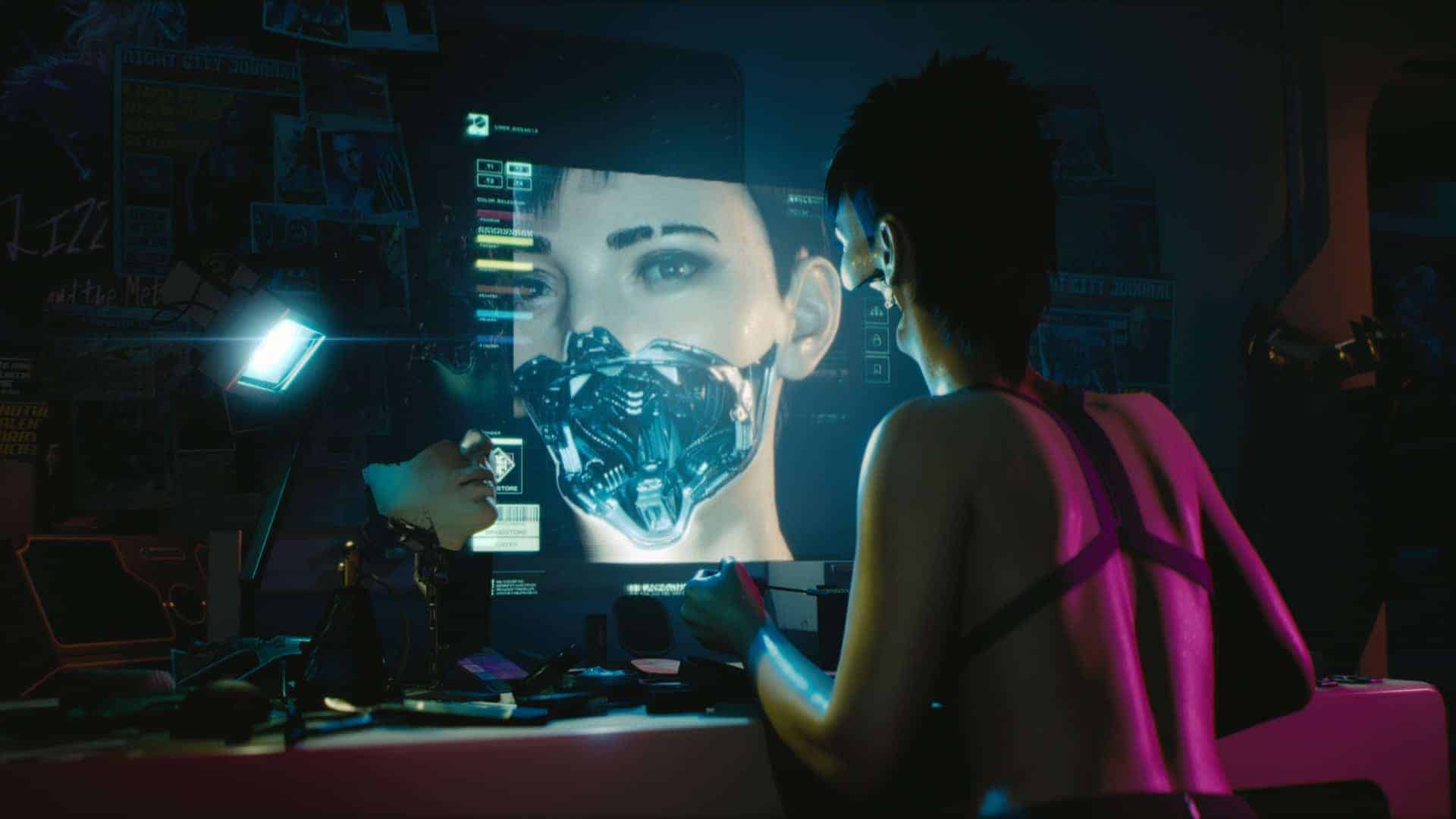
Cyberpunk 2077 is still polarising. User reviews made as recently as June 2022 fall in extremes, with either gushing 10/10 scores or bitter 0/10 ones, and rarely anything in between.
It seems that if you are a Cyberpunk 2077 fan then it can do no wrong, and if you’re not, then it stands as a scapegoat for everything; such is the nature of the internet.
One thing is for sure which is that CD PROJEKT RED made it through the fire. At the time of writing, The Witcher 4 is on the horizon and the hype for that is already in full swing. With a strong promise to never return to the crunch culture and one of the most extreme experiences of launch failure behind them, CDPR looks like they have learned from their mistakes and, if that’s true, their future is bright.

